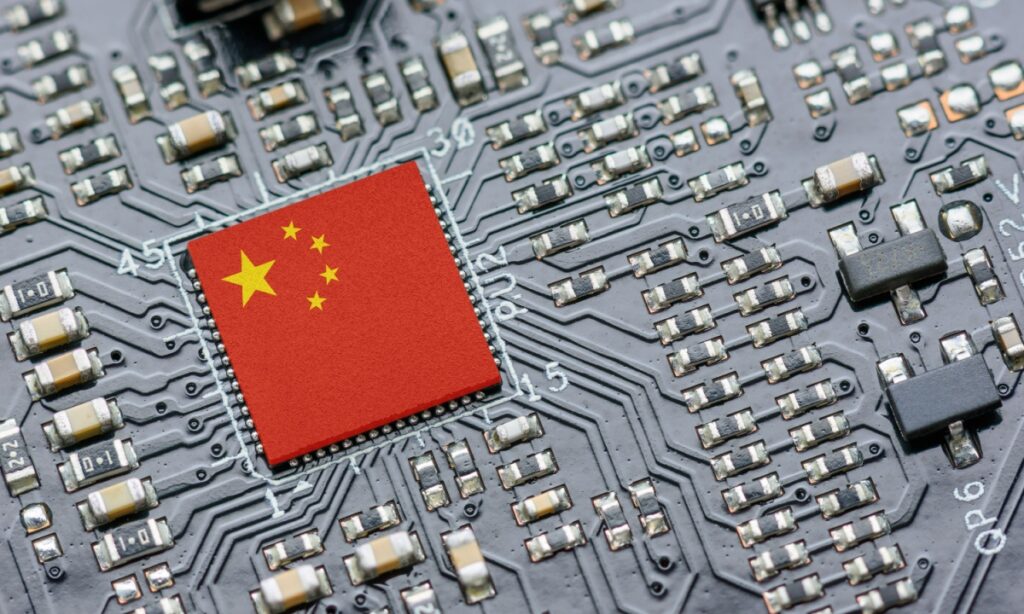Chinese companies are rushing to adopt generative artificial intelligence (AI), a technological leap that experts say could transform global commerce and give China a decisive advantage.
This significant lead, combined with China's dominance in AI patent applications and strong government support, could reshape global market trends and give Chinese companies an advantage in industries ranging from e-commerce to manufacturing.
As the AI race between the world's two largest economies intensifies, the implications for international trade, innovation, and economic competitiveness will be profound, potentially straining U.S.-China relations and forcing a reevaluation of regulatory approaches to AI development.
“The Chinese government is devoting enormous resources to AI research and development,” Robert Khachatrian, CEO of Freight Rite Global Logistics, told PYMNTS. “For example, in 2020, the country announced plans to invest $1.4 trillion over five years in AI and other high-tech industries.”
The Biden administration recently introduced policies requiring federal agencies to assess and address potential risks associated with artificial intelligence (AI) systems, and the head of Norway's oil fund declared that U.S. companies are outpacing their European counterparts in technological advances, prompting European leaders to sound the alarm about lagging innovation and raising calls for the EU to become more economically independent.
China's AI Dominance: The Perfect Storm
According to a survey by US AI and analytics software company SAS and Coleman Parkes Research, 83% of Chinese respondents across industries are using generative AI, compared to just 65% in the US and a global average of 54%. The growing adoption of AI in sectors ranging from banking to manufacturing could have significant commercial impacts, reshaping market trends and competitive advantages globally.
The survey surveyed 1,600 decision makers in 17 countries and regions across the banking, insurance, healthcare, telecommunications, manufacturing, retail and energy industries.It's the latest sign of China's rapid advances in AI technology, which has been garnering global attention since U.S.-based OpenAI launched ChatGPT in late 2022.
China's progress isn't limited to adoption rates: According to a recent report by the United Nations' World Intellectual Property Organization, China is also leading the generative AI patent race, filing more than 38,000 patent applications between 2014 and 2023, compared to 6,276 applications by the United States in the same period.
China’s regulatory environment has played a key role in the success of AI.
“It's not surprising that China's regulatory approach has taken a China-first approach,” Nicholas Liu, chief technology officer at Labviva, an AI procurement technology company for life sciences, told PYMNTS. “Regulations are being implemented to ensure market dominance of local companies in the Chinese market. This gives local companies that are aligned with regulators an unfair advantage over foreign and local companies that are not aligned.”
The implications of China's AI leadership could be far-reaching.
“China's lead in AI could give Chinese companies a huge advantage in sectors like e-commerce, manufacturing and finance, leading to more efficient operations, cost savings and innovative products,” Khachaturian said.
The importance of AI advantages can't be overstated, some observers said.
“A nation gaining economic control over emerging AI technologies is like owning the internal combustion engine. It could have the same impact, if not more,” Liu said.
This technological advantage could also affect global trade dynamics and strain relations between China and other countries, especially the U.S. This competition could lead to increased conflict over technology and intellectual property.
Despite China's advances, the United States is not sitting idly by. In recent months, the U.S. government has stepped up efforts to curb exports of advanced AI technologies to China. These measures are aimed at slowing China's progress in AI development and preserving the U.S. technological advantage.
In October 2022, the Biden Administration imposed broad export controls on advanced computing chips, specifically aimed at stifling China's ability to develop robust AI systems. More recently, the United States has been considering additional restrictions on exports of AI software and cloud services to China.
These measures reflect growing concerns in Washington about China's rapid AI advances and their potential impact on national security and economic competitiveness, but it remains to be seen whether these measures will be effective in slowing China's AI momentum, as research and expert opinion suggest.
How will the US respond?
For U.S. businesses and policymakers, the stakes are high.
“The best response from a U.S. perspective is for regulatory actions against domestic AI-driven companies to focus on enabling those companies to gain an economic advantage over competing nations' efforts,” Rioux said. “To be successful, we need to minimize intrusions into U.S. companies and avoid imposing political and social agendas over pro-growth regulations.”
These developments come despite U.S. efforts to curb China's technological advances, highlighting the fierce competition in AI between the world's two largest economies. As companies around the world rush to harness the transformative power of AI, China's lead raises questions about future innovation, productivity growth and market power in an AI-driven economy.


